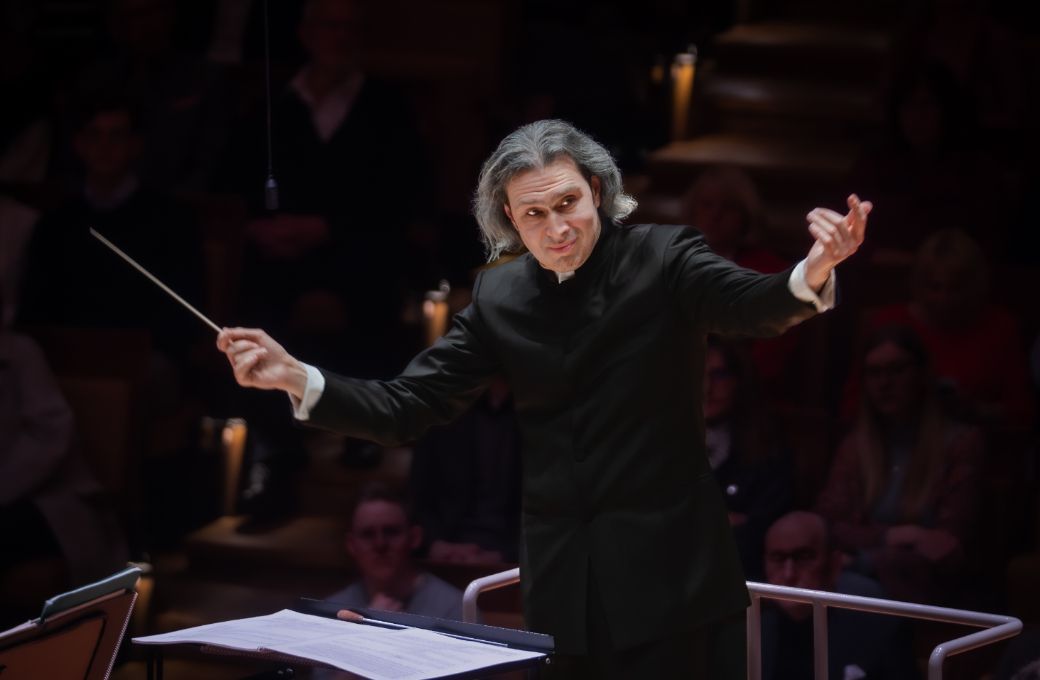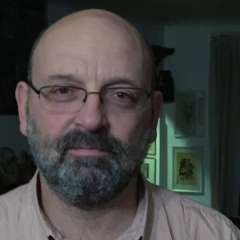Celebrating its centennial this year, the Berlin Radio Symphony Orchestra and its Chief Conductor, Vladimir Jurowski, put together a Philharmonie programme (mostly) consisting of works composed in the last 100 years, all quite seldomly performed.

The only exception was the introductory work, Mussorgsky’s Night on Bare Mountain, performed in its rugged original version, not in the Technicolor one rearranged by Rimsky-Korsakov. Savage and brutal, with chilling woodwind shrieks and biting dissonances describing a witches’ Sabbath, Jurowski’s version of this “tone-picture” was a great premonition of things to come later in the evening, since the music of both Shostakovich and Prokofiev has its roots in the full of visceral intensity of Mussorgsky's scores.
Replacing the initially announced Truls Mørk, cellist Ivan Karizna lovingly shaped the unconventional, piano espressivo, solo opening statement in Shostakovich’s Cello Concerto no. 2. Together with the orchestra, he sustained the tension in the long-breathed, melancholy Largo well, with a meandering melody adorned with dissonant harmonies. An attempt to shift the mood, during the development, seemed to be doomed from the start. Anchored by a street vendor's tune, full of hollow joy, the brief Scherzo also represented a vain effort to escape an overall atmosphere of desolation.
Always in tune with his soloist, Jurowski controlled the syncopated rhythms and the mad, sparsely-orchestrated dialogues between cello, horn, xylophone and bassoons. Displaying their mastery of Shostakovich’s idiom, Karizna and Jurowski brought forward the tense desperation in the Finale where lyrical flourishes alternate with sarcasm, while the cello, acting at different points as an additional percussion instrument, eventually fades, unconsolably, away.
After the interval, the ten-minute-long Symphonic Variations by Witold Lutosƚawski was the only work outside the Russian repertoire that Jurowski is so familiar with and conducts with great insight. In that sense, the conductor was not at all reluctant to underline how much Lutosƚawski’s orchestration in the adventurous variations (on both the melodic and rhythmic patterns of the theme) owes to Stravinsky’s early music. With its eerie chords, multiple solo interventions (flute, oboe, horn), this youthful score was as much a showcase for the orchestra’s ardour and dedication as the evening's concluding work.
Rearranging material from his opera The Fiery Angel, with its depictions of medieval sorcery, demonic possession and mass hysteria, Prokofiev’s cinematic Third Symphony inhibits a similarly otherworldly demonic space as Night on Bare Mountain. Even if different scenes were reshuffled, the opera’s admirers could still recognise, in Jurowski's energetic and well-shaped account, the prelude to the opera’s final act in the pensive string chorale at the beginning of the Andante or the scene when Renata, the opera’s main character, resorts to black arts in the devilish Scherzo. This third movement was the high point of Jurowski's rendition; the menacing currents were even more palpable here in the combination of glissandi, jazzy pizzicati and brass and drum pronouncements, played without any whiff of lingering. The more episodic Finale, with the different strata of busy orchestration handled with transparency, caught fire as well, the excellent string and percussion sections of the orchestra vying for attention.


